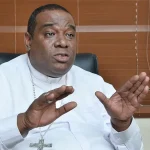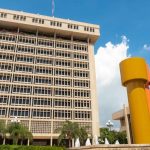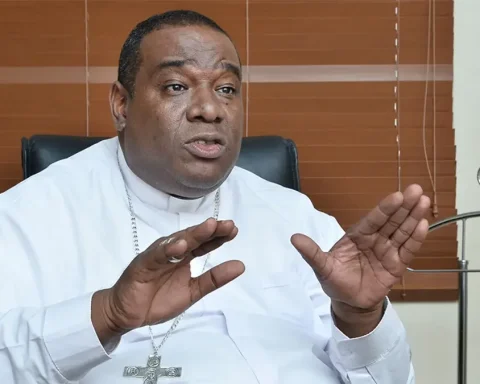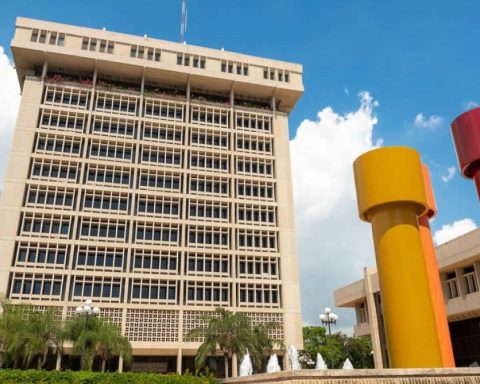This week marks two years since Gustavo Petro Urrego arrived at the Casa de Nariño and, with this, began an era for the Colombian economy that has been marked by attempts at reform, drastic changes to the pension system and several other bets with which the first leftist President has tried to change the order of things, According to him, he promoted the principles of social justice.
All this in the midst of a race against the economic slowdown, the abrupt fall in investment and the collapse of important sectors such as industry, commerce and construction, which have been in negative balance for more than a year, and the insistence of unions and study centers to launch an economic recovery plan as soon as possible.
(For reading: Petro is reportedly working on a negotiation with Maduro, according to a government source)
Although during this time there have been advances in terms of macroeconomic stability and reduction of the fiscal deficit, analysts and former ministers consulted by Portafolio warn that issues such as low tax collection, low budget execution and The constant fight with businessmen and industrialists shows part of what needs to be improved in the future.
Economic recession
PHOTO: iStock
José Antonio Ocampo, who was the first Minister of Finance of the Petro government, said that among the positive things is that an overheating of the economy was avoided and the significant reduction of the current account deficit in the balance of payments, which in his accounts was brought to a sustainable level.
“In the fiscal field, I would also highlight what was done with the Fuel Stabilization Fund.it has already been eliminated for gasoline and is in the process of being eliminated for diesel fuel. Regarding the debt, there has been a lot of criticism that the government is paying very high interest, but all of that has been corrected,” he said.
On the negative side, Ocampo referred to the low execution of the budget, warning that this “shows that many people have entered the government who do not have the appropriate experience to manage public affairs,” while raising several warnings regarding the fall in investment by the State and private capital.
(In other news: Thinking about setting up a shop? This is valid on a TransMilenio portal and the requirements)
A period of reforms
For Theodore Kahn, associate director of Control Risks, another element to highlight during these two years is the progress of important reforms for the Government, such as the pension reform, as well as the bets it has been making in terms of energy transition. However, he recognizes This has taken its toll on investor confidence and that is why we need to work on this.
“The lack of clear policies and a fixed course regarding the Government’s priorities was not good. The issue of energy transition itself is a very good example and at first it was said that it was going to be a banner of this Government, but it never created, nor articulated, much less implemented, a clear and adequate strategy to address this issue that is so important for the country. We are already seeing the consequences of that, because the country is facing the possibility of a significant deficit in the supply of gas,” he added.

In his opening speech to Congress, President Gustavo Petro assumed political responsibility for appointing Olmedo López to UNGRD.
Cesar Melgarejo / Portfolio
Meanwhile, Andrés Moreno Jaramillo points out that although the first half The Petro era was not the best, but there is still the opportunity to correct course, focusing on policies that strengthen the economy and generate confidence in the private sector and foreign investment.
“Dollar down and stable, some investors left but others arrived, inflation was very delayed, there were no clear shock policies to control inflation, obviously the rise in gasoline prices had an impact, but inflation could have been improved with more productivity and other ideas. In addition, companies were heavily burdened with taxes and that caused no job creation and the economy to stagnate. Everything was very regular,” he said.
(Read here: The new commitment to boost economic growth in Tumaco)
Uneven progress
Another look in this analysis focused on the progress of the macroeconomic and labor indicators of the National Development Plan, where it is seen that the weaknesses in labor matters have been in the promotion of youth and female employment, whose indicators do not reach 50%, as well as in the promotion of solidarity organizations.
José Ignacio López, president of Anif, also took part in this consultation of experts and in his opinion, the balance is “regular tending to bad” since factors such as the fiscal rule, the management of fuel prices and the energy transition have been good, while the Creg crisis and the management of housing subsidies have not been handled in the best way.
“There is the need to stop the awarding of new exploration contracts, modify the policy housing subsidies, the halt to the rise in tolls that he is now trying to undo. But it has really been a mistake to slow down the operation of the Energy and Gas Regulatory Commission, which has remained paralyzed for a good part of his government. That, plus the need for a reactivation, marks the challenges for the future,” he said.

Colombian pesos
iStock
Regarding the management indicators of the Ministry of Finance in the Development Plan, all are above 70%, which can be interpreted positively. However, it should not be overlooked that tax collection figures are below expectations, even with the latest adjustments to the Medium-Term Fiscal Framework.
Teamwork
With all this in mind, the rector of the EIA University and former Minister of Finance, José Manuel, assures that the great challenge for the two remaining years will be to face the challenges of growth, fiscal and social issues. effectively, seeking to build consensus and policies that strengthen private investment.
(More information: How does the new reduction in usury rates benefit purchases with cards and credits?)
“The slowdown is already taking its toll on social figures such as employment, but it will surely affect poverty and equity. That is why we must think about how to minimize these negative effects, but for this to happen we must correct the course to work jointly with the business sector on an economic reactivation plan and above all on reform proposals that contribute to the better dynamics of private investment and not the opposite,” said Restrepo Abondano.
Finally, Professor Henry Amorocho, professor at the University of Rosario, He said that, taking advantage of the fact that there is talk these days about changing the tax system in Colombia, the possibility of carrying out a territorial tax reform should be put on the table, as well as a review of the general system of participations and subsidies to improve fiscal sustainability.

Investment
iStock
“More resources need to be given to municipalities and departments, and to do so we need to review the General Participation System, but also look at how it is being spent, because for me we have a mistake there. We need to look more closely at the issue of subsidies. And of course, we would have a particularity to solve the problem that the public budget for 2025 is posing,” he explained.
For this analyst, as well as all those who spoke with Portafolio, the most important thing at this time is to guarantee fiscal sustainability in the short and medium term, as well as to strengthen investor confidence. Without this, any plan you have in mind will be difficult to execute.


















